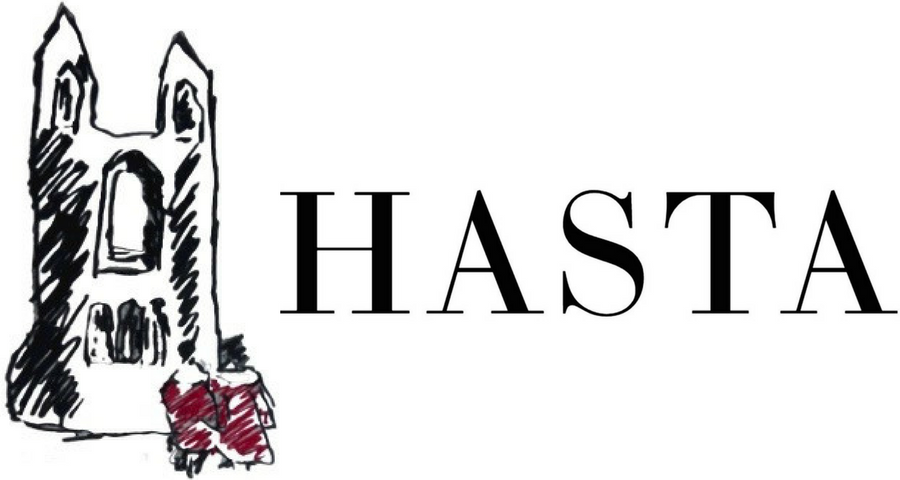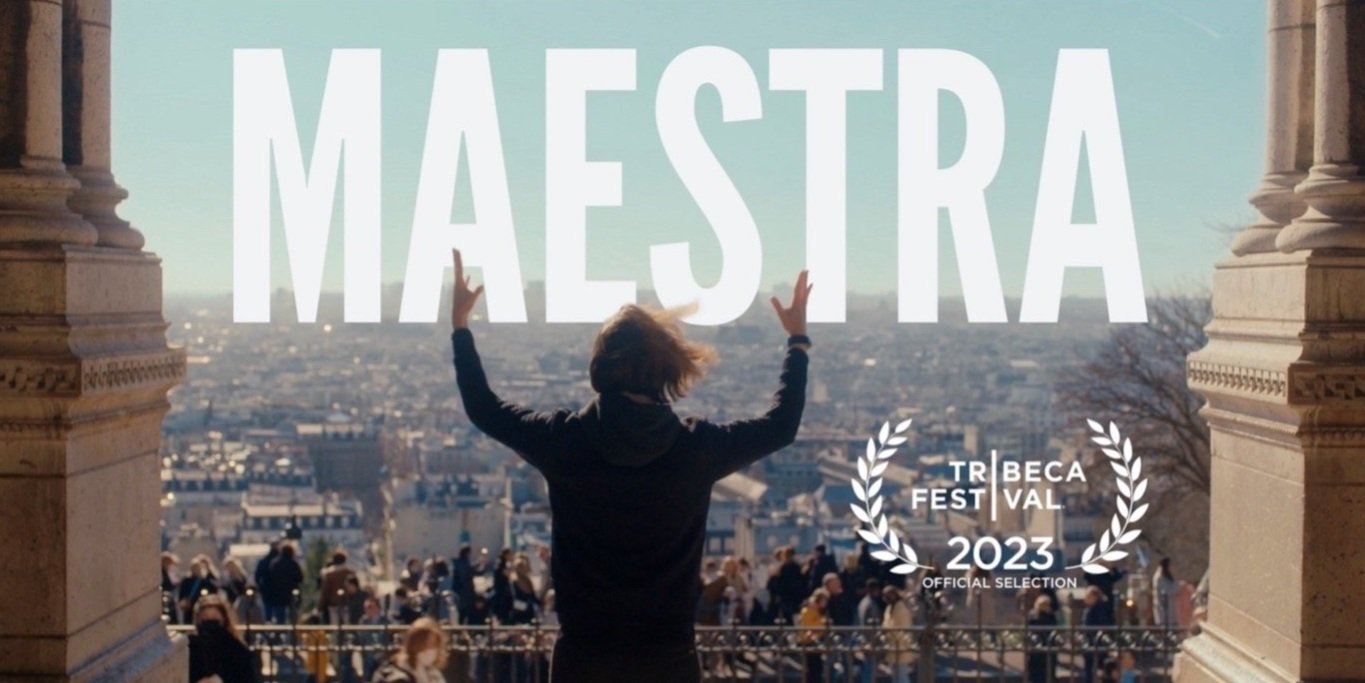Maestra at Sands 2024: Survival of the Fittest in a Women's Conducting Competition
By Lucy Evans
Maestra: the utterly compelling story of the fierce Parisian competition in which the world’s top female conductors come head-to-head in a battle of the… of the what, exactly? The most musically gifted, the most charismatic, the most psychologically grounded, the most driven, the best-dressed, the most elegant, the most beautiful? In a quest to achieve a platform and a position in the male-dominated world of conducting, conducting is revealed as a complex and gendered sport that is precariously inhabited by the few women occupying its limited and highly contested places.
Maestra, directed by Maggie Contreras, 2023.
This film teaches its viewer, amongst other more broadly relevant truths, that conducting is not what you think it is – it is more than a performance, or a unifying, time-keeping mechanism; it’s a ‘lightning rod’ (according to one judge) igniting the orchestra and connecting the audience with the music, and, crucially, it cannot be learned, faked or mimicked: it relies on artistry. La Maestra, it is worth spelling out, is the only competition in the world for female conductors and was launched in 2020 by the Paris Philharmonic and Paris Mozart Orchestra. The competition, here in its second year in March 2022, judges fourteen final contestants in Paris from an original 202 applicants from fifty countries. In this way, this new competition is a vital opportunity for female conductors to find a place in a cutthroat industry dominated by men – around 6% of conductors globally are women.
This fascinating film, which brings the 2024 instalment of the Sands Film Festival in St Andrews to an inspiring close, is unique in the way in which it brings together different narratives of varying tones into one documentary. The film combines the classic structure and live reality of today’s plethora of televised contests, albeit being a little more serious than your average episode of The Bake Off, with the personal and poetic narration of the personal lives of La Maestra’s contestants. The film reveals itself subtly and incrementally as being a critique of the competition – although ambivalently positioned in relation to the both the merits and pitfalls of it. La Maestra, although undoubtedly of great importance for female conductors (or for the individual who is lucky enough to win it) seems to operate with a kind of internalised misogynistic logic, whereby the reasoning behind the competition – to single out only one, outstanding woman who will gain a world-class platform in the industry – is founded on the rationale that there are limited spaces for women in the profession. The competition therefore capitalises on an artificially constructed pretence of rarity with regards to female talent in the industry and pits these women against each other in an unnecessarily ruthless process of elimination, ultimately reinforcing the idea that there isn’t room for more than a handful of women in the industry.
Tamara Dworetz in Maestra, directed by Maggie Contreras, 2023.
Directed by Maggie Contreras in her debut feature documentary and released in 2023, Maestra focuses on five of the world’s most remarkable female conductors: Mélisse Brunet (USA), Tamara Dworetz (USA), Anna Sulkowska-Migon (Poland), Zoe Zeniodi (Greece) and Ustina Dubitsky (Ukraine). Filmed during the pandemic, the women whose lives are followed in the film were chosen somewhat at random, following the accessibility limits of the pandemic and the wishes and interests of the participants themselves. Indeed, we learn nothing of two of the final three contestants but instead follow the life of the competition’s ultimate winner, leading to a somewhat random narrativization of events.
Throughout the film, my understand of what conducting is evolved and developed, as the contestants and judges each offered insight into the fascinating art of a most unusual and niche profession. It was collectively emphasised that the character of the final piece of music is in the hands of the conductor, whose whole self is brought to the job, with their physicality and facial expressions a crucial element of communication with the orchestra. The conductor must convey the emotion of the piece and create a narrative whilst also keeping the tempo and organising the orchestra. Human connection was also emphasised as a crucial element of the job: having the ability to connect with the orchestra, and indeed each individual musician, seemed to be of vital importance. This skill, it was implicitly suggested, must come from a place of security and confidence in the conductor; there is no space for second-guessing yourself in this profession – the mind and the body must be strong and assertive if the orchestra are to relax under the conductor’s leadership.
Anna Sukowlka-Migon in Maestra, directed by Maggie Contreras, 2023.
One of the crucial elements of the film was its focus on the everyday concerns and compromises of these women’s lives. Zoe, for example, is a freelance conductor and so has to spend long periods of time travelling and away from her young children, living an often lonely existence in temporary homes for a month or so at a time, constantly away from her children. The film poignantly shows an intimate scene in which Zoe’s children wish her a happy birthday over FaceTime while she sits alone in a room in New Mexico. The competition was repeatedly emphasised as a crucial opportunity for these women to gain a permanent position in the industry – a pragmatic concern underpinning all the prestige, elegance and sophistication of the competition and the profession.
Another poignant story was that of Ustina’s, a conductor from Ukraine. Ustina arrived in Paris for the competition a week after Russia invaded Ukraine and considered not competing at all. In the end, however, Ustina concluded that the least she could do was continue to be an artist as her form of protest. Ustina’s resilience, grace and generosity of spirit were evident, and although she did not make it into the top three, she was chosen by the orchestra as the best conductor, evidencing her capacity to connect with the musicians. Standing outside the Philharmonie de Paris, Ustina describes how she ‘had the feeling I could breathe for the first time’.
Maestra is an incredibly uplifting and inspiring film – a tear-jerker and a poignant exploration of human determination, passion and compromise. There is so much more to say about this film, from the surprisingly gendered feedback that the contestants received, to the psychological journeys that these women go on, but the main takeaway for me was how incredibly dedicated this work requires one to be, and the sacrifices that it can entail, especially for women. Combining the personal and the political, this film is rich in its explorations of multiple intertwined narratives, and shines a light on the gendered hierarchies of a fascinating profession.



